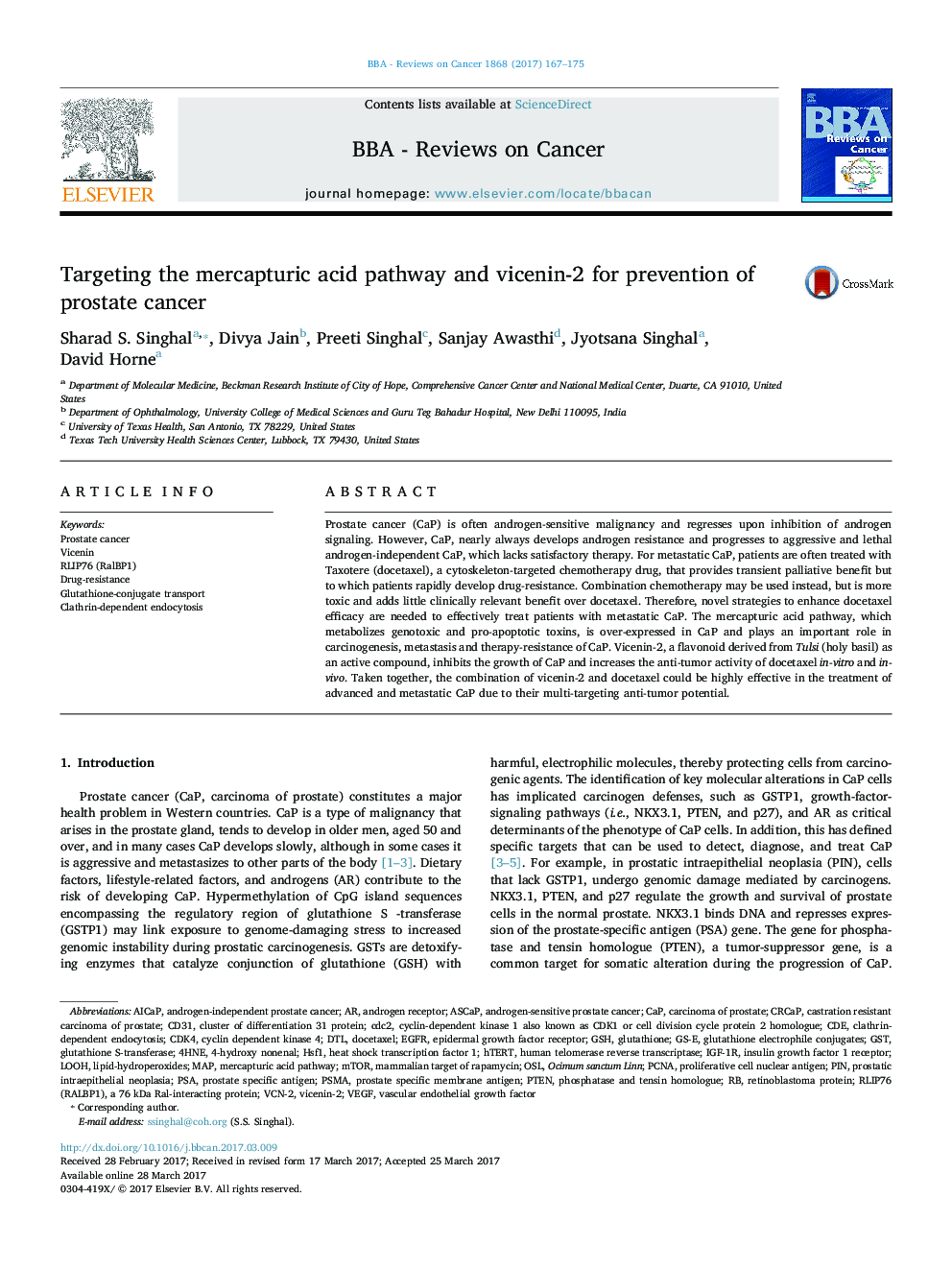| کد مقاله | کد نشریه | سال انتشار | مقاله انگلیسی | نسخه تمام متن |
|---|---|---|---|---|
| 5524007 | 1401403 | 2017 | 9 صفحه PDF | دانلود رایگان |
• VCN-2 is a safe and non-toxic flavonoid from the herb “Ocimum sanctum Linn (OSL)”, also known as “holy basil” or “Tulsi” which has been used for thousands of years in Ayurvedic medicine.
• VCN-2 induces potent anticancer effects in CaP irrespective of AR responsiveness or p53 status by inhibiting critical nodes of tumor signaling such as c-Myc, AR, EGFR, pIGFR, PCNA, hTERT and increasing the pro-differentiation marker E-cadherin.
• VCN-2 inhibits angiogenesis and decreases VEGF expression in CaP. In preclinical models, VCN-2 was effectively absorbed after oral administration, which correlated with tumor regression.
• The i.v. administration of DTL, the current drug of choice in AICaP, is associated with dose-limiting complications like febrile neutropenia which has lead to testing potential combinatorial regimens and alternate routes of administration. In this regard, the described studies provide strong evidence supporting a synergistic inhibitory effect of oral administration of VCN-2 and DTL in mouse xenografts of CaP without any toxicity and weight loss.
• The VCN-2 and DTL combination caused greater inhibition of the CaP signaling networks compared to either of the single agents. The clinical significance is based on the high probability of clinical translation of VCN-2 into a non-toxic strategy for enhancing the efficacy of DTL in AICaP.
Prostate cancer (CaP) is often androgen-sensitive malignancy and regresses upon inhibition of androgen signaling. However, CaP, nearly always develops androgen resistance and progresses to aggressive and lethal androgen-independent CaP, which lacks satisfactory therapy. For metastatic CaP, patients are often treated with Taxotere (docetaxel), a cytoskeleton-targeted chemotherapy drug, that provides transient palliative benefit but to which patients rapidly develop drug-resistance. Combination chemotherapy may be used instead, but is more toxic and adds little clinically relevant benefit over docetaxel. Therefore, novel strategies to enhance docetaxel efficacy are needed to effectively treat patients with metastatic CaP. The mercapturic acid pathway, which metabolizes genotoxic and pro-apoptotic toxins, is over-expressed in CaP and plays an important role in carcinogenesis, metastasis and therapy-resistance of CaP. Vicenin-2, a flavonoid derived from Tulsi (holy basil) as an active compound, inhibits the growth of CaP and increases the anti-tumor activity of docetaxel in-vitro and in-vivo. Taken together, the combination of vicenin-2 and docetaxel could be highly effective in the treatment of advanced and metastatic CaP due to their multi-targeting anti-tumor potential.
Journal: Biochimica et Biophysica Acta (BBA) - Reviews on Cancer - Volume 1868, Issue 1, August 2017, Pages 167–175
